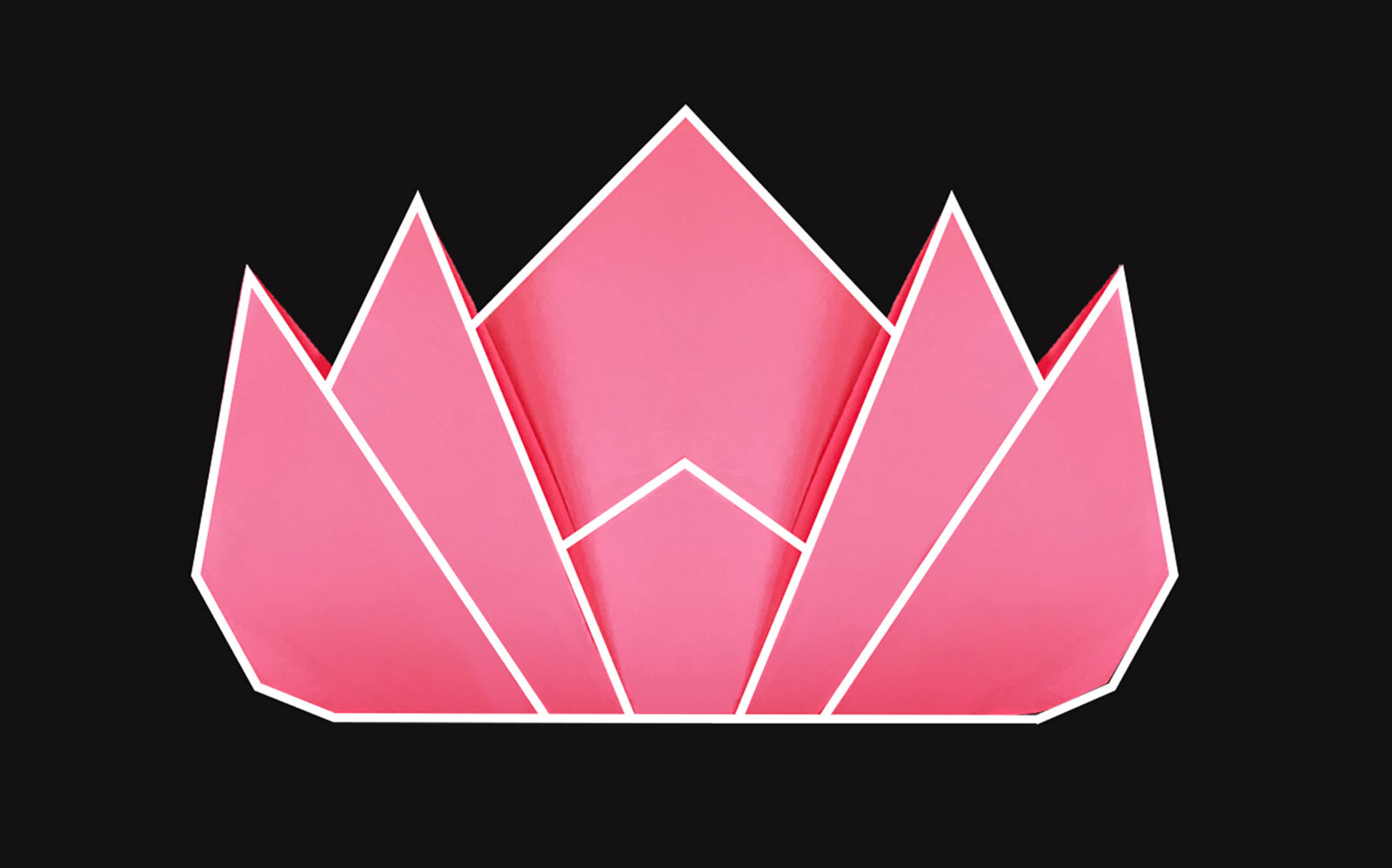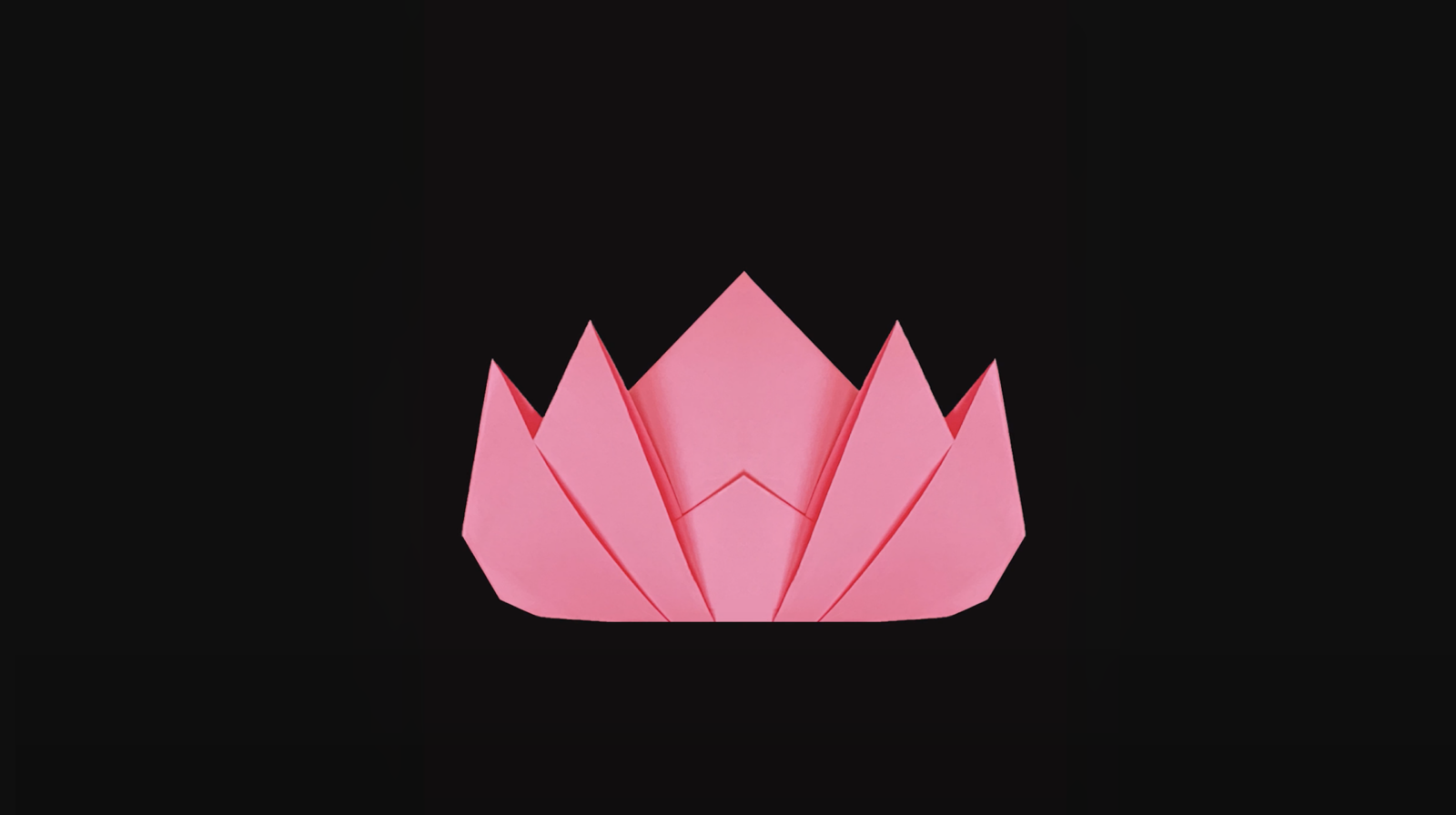For The Lotus Effect, we invite you to fold an origami lotus of your own and contribute it to a physical installation. The installation serves as a community-built symbol of gratitude for the people and things that help us get through difficult moments.
Fold an Origami Lotus Flower
Follow the video above to learn how to fold a paper lotus, and dedicate your lotus to someone or something that supports you through challenging times. Get creative! You can add color, words, or even shapes. Make it uniquely yours. If you’re planning to bring your lotus to the Museum, please use a paper size that is less than 36 in. x 36 in.
Bring Your Origami Lotus to the Museum
We invite you to bring your origami lotus to the Museum to contribute to the physical installation located in the lobby. Please note, while a ticket is not required to enter this space, participants will need to follow all safety protocols. To visit the galleries, we recommend purchasing a ticket in advance as limited walk-up tickets will be available at the door.
Share on Social Media
While the Museum is closed, photograph your origami lotus and share it on social media using the #TheLotusEffect and tagging @rubinmuseum. Who or what are the “lotuses” in your life that remind you of the bloom beyond murky waters?
Mail or Email
You can mail your lotus to the Rubin Museum to become part of the physical installation or email a photograph of your lotus to [email protected] to be part of an onsite digital slideshow.
Fold as a (Virtual) Group
Fold together by sharing our step-by-step instructions with loved ones. Share your creations with each other and @rubinmuseum online.
The Lotus Effect and educational programs are made possible through the generosity of Agnes Gund, New York Life Insurance Company*, The Prospect Hill Foundation, Tiger Baron Foundation, Con Edison, The Pierre and Tana Matisse Foundation, and public funds from the New York City Department of Cultural Affairs in partnership with the City Council.
The Year of Impermanence at the Rubin Museum is made possible by Bob and Lois Baylis, Fred Eychaner, Christopher J. Fussner, Agnes Gund, Matt and Ann Nimetz, Rasika and Girish Reddy, and Shelley and Donald Rubin.
General operating support of the Rubin Museum of Art is provided by the New York State Council on the Arts with the support of Governor Andrew M. Cuomo and the New York State Legislature, as well as by generous donations from the Museum’s Board of Trustees, individual donors and members.*”NEW YORK LIFE” and the NEW YORK LIFE Box Logo are trademarks of New York Life Insurance Company. Other trademarks are the property of their respective owners.

